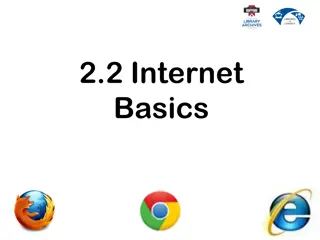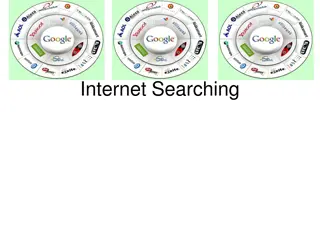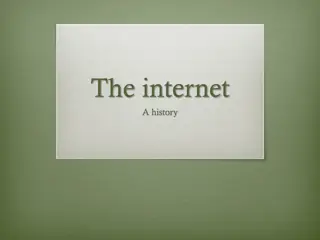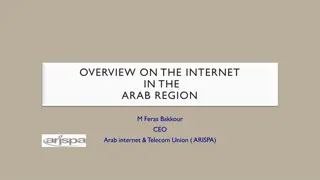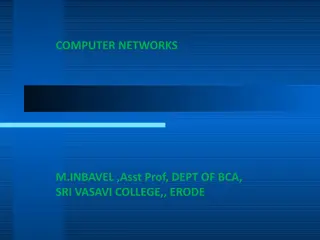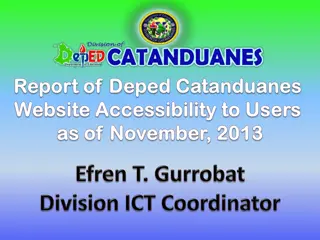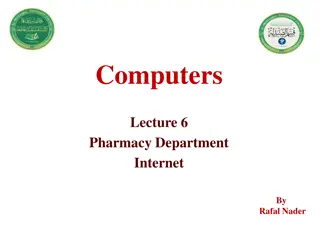The Social Benefits of the Internet
The Internet serves as a powerful tool for connecting people globally, facilitating communication, supporting individuals with disabilities, advancing healthcare through telemedicine, and enabling innovative services like VoIP and smart home technologies. It enhances relationships, promotes accessibility, and revolutionizes various sectors, ultimately fostering a more interconnected and inclusive society.
Download Presentation

Please find below an Image/Link to download the presentation.
The content on the website is provided AS IS for your information and personal use only. It may not be sold, licensed, or shared on other websites without obtaining consent from the author.If you encounter any issues during the download, it is possible that the publisher has removed the file from their server.
You are allowed to download the files provided on this website for personal or commercial use, subject to the condition that they are used lawfully. All files are the property of their respective owners.
The content on the website is provided AS IS for your information and personal use only. It may not be sold, licensed, or shared on other websites without obtaining consent from the author.
E N D
Presentation Transcript
The social benefits of the Internet The Internet brings people closer together. Before the Internet, it was possible to keep in touch with relatives and friends across the country or around the world--but it was also expensive. Today, communicating with a friend in Japan is as easy and cheap as communicating with a friend across town, and families regularly use the Internet to keep in touch with far-flung relatives. Millions of people with shared interests--no matter how obscure--exchange communities through Web sites, email and instant- messaging software. information and build
Using innovative accessibility aids, people with disabilities can use the Internet to help overcome barriers that prevent them from leading more productive and fulfilling lives. Telemedicine applications can use Internet to transmit detailed medical images, as well as for videoconferencing to connect healthcare clinics in remote rural locations specialists located primarily in urban centres. with experts and
Telemedicine and e-Health are broadly defined as the application of electronic communication technologies to the provision of healthcare, health education and health services. Telemedicine applications can allow health care professionals to monitor a patient s health remotely and, using technologies can have access to critically needed specialists. videoconferencing
The most prominent example of how the Internet has resulted in innovative new services is the development of VoIP Protocol). (Voice over Internet VoIP transmission over broadband connections, and is already revolutionizing the telecommunications industry. allows high quality two-way voice
Smart broadband technologies to control the electronic devices in the home remotely. Lighting, heating and air conditioning, appliances, and home security and other systems can now be remotely monitored and controlled. Homes: Homeowners can utilize E-government has become the prime tool for supporting government functions and interaction with citizens and businesses.












